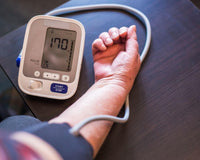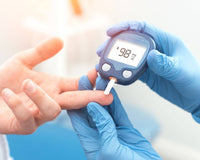Clopidogrel Pronunciation, Side Effects, Dosage, Uses & Interactions
Clopidogrel is a prescription medication that is often prescribed to prevent heart attacks and strokes in patients with heart disease or blood circulation diseases. It is commonly available as the brand name drug Plavix. In the following article we discuss the dosage, side effects, interactions, and warnings of this medication. Learn more about clopidogrel here.
What Is Clopidogrel?
Clopidogrel is a prescription medication that belongs to a class of drugs called antiplatelet medications. These medications work to prevent blood cells from sticking together and forming blood clots.
Clopidogrel Pronunciation
Clopidogrel is a common prescription medication, but its name can be quite difficult to pronounce. The syllabic pronunciation of clopidogrel is as follows:
Klow - pi - duh - grel
You can listen to a full pronunciation of clopidogrel here.
Clopidogrel Brand Names
Clopidogrel can be purchased as the brand name drug Plavix. Plavix comes as an oral tablet which should be taken by mouth. Generic forms of clopidogrel are also available as well.
How Does Clopidogrel Work?
Clopidogrel works by preventing red blood cells (platelets) from sticking together. When red blood cells cohere, it can lead to blood clots and serious health conditions. Clopidogrel inhibits platelet activation and binding through the activation of ADP receptors.
Clopidogrel Uses
As an antiplatelet medication, clopidogrel is useful in treating conditions affected or caused by changes in blood content and pressure. It can be used to treat or prevent heart attack, stroke, heart disease, or blood circulation diseases.
How To Take Clopidogre
Take clopidogrel as directed by your doctor. Your doctor may tell you to take aspirin while taking clopidogrel. Do not change your dosage of clopidogrel while taking aspirin without first consulting a healthcare professional.
Before Taking Clopidogrel
When deciding which medication to take to treat blood pressure and blood circulation diseases, it is important to consider the side effects and possible interactions of the medicine you are taking. Clopidogrel can cause a few possible negative interactions if you are allergic to it or take it with certain medications.
Clopidogrel Allergy
Tell your doctor if you have ever had any unusual or allergic reaction to clopidogrel or any similar medications. Also tell your health care professional if you have any other types of allergies, such as to foods, dyes, preservatives, or animals.
Clopidogrel Dosage
Your dosage of clopidogrel may depend on many factors, including the following:
- Your weight
- Your age
- Severity of condition
- Response to the first dose
Clopidogrel Dosage For Heart Attack Or Stroke
Adult: At first 300 milligrams taken as a single dose. A maintenance dose of 75mg should then be taken afterwards.
Dosage For Preventing Of Heart Attack Or Stroke
Adult: 75mg once a day.
Clopidogrel Side Effects
Clopidogrel does have some potential side effects. Certain side effects of clopidogrel are more serious and less common than others.
Common Side Effects
The common side effects of clopidogrel include:
- Bloating
- Blurred vision
- Cold sweats
- Dizziness
- Difficulty speaking
- Hives
- Itch
- Rash
- Nervousness
- Muscle aches
- Anxiety
- Shakiness
- Red, irritated eyes and skin
If these side effects are mild, they may disappear within a few days.
Serious Side Effects
Other side effects of clopidogrel are more serious. If you experience any of the following symptoms, contact your doctor immediately. Call 911 if you think your side effects are life-threatening.
- Unexplained weight loss
- Red or black stools
- Blood in the urine
- Vomiting blood
- Coughing up blood or blood clots
- Seizures
- Paranoia
- Yellowing of skin or eyes
- Fast heartbeat
- Vision loss
- Vomiting
Clopidogrel Interactions
Clopidogrel can interact with several other medications. Before taking clopidogrel, it is important to talk to your doctor about any other medications you are taking or plan to take.
Diabetes drugs such as repaglinide should not be taken in conjunction with clopidogrel.
Do not take clopidogrel in conjunction with medications used to treat stomach acid problems, including acid reflux. Doing so may result in serious side effects. Common examples of these drugs include Omeprazole and Esomeprazole.

Clopidogrel should not be taken along with blood thinners such as Warfarin. Doing so can cause blood to become dangerously thin.
Clopidogrel Warnings
Taking clopidogrel may cause increased bleeding if you have a history of nosebleeds. In addition, bleeding may take longer to stop. You should tell your doctor about any serious or frequent bleeding before taking clopidogrel.
List Of Foods To Avoid With Clopidogrel
Because clopidogrel is a medication that works to prevent blood cells from sticking, it may not work as well if you ingest foods that raise blood pressure or impact the herat. Before you begin taking clopidogrel, your doctor may recommend multiple changes to your daily diet.
Avoid eating this foods while taking clopidogrel
- Broccoli
- Brussel sprouts
- Asparagus
- Kale
- Parsley
- Spinach
Clopidogrel Summary
Clopidogrel is a prescription medication used to prevent and treat heart attack and stroke. It is an antiplatelet medication that works to prevent blood cells from sticking together and forming clots.








